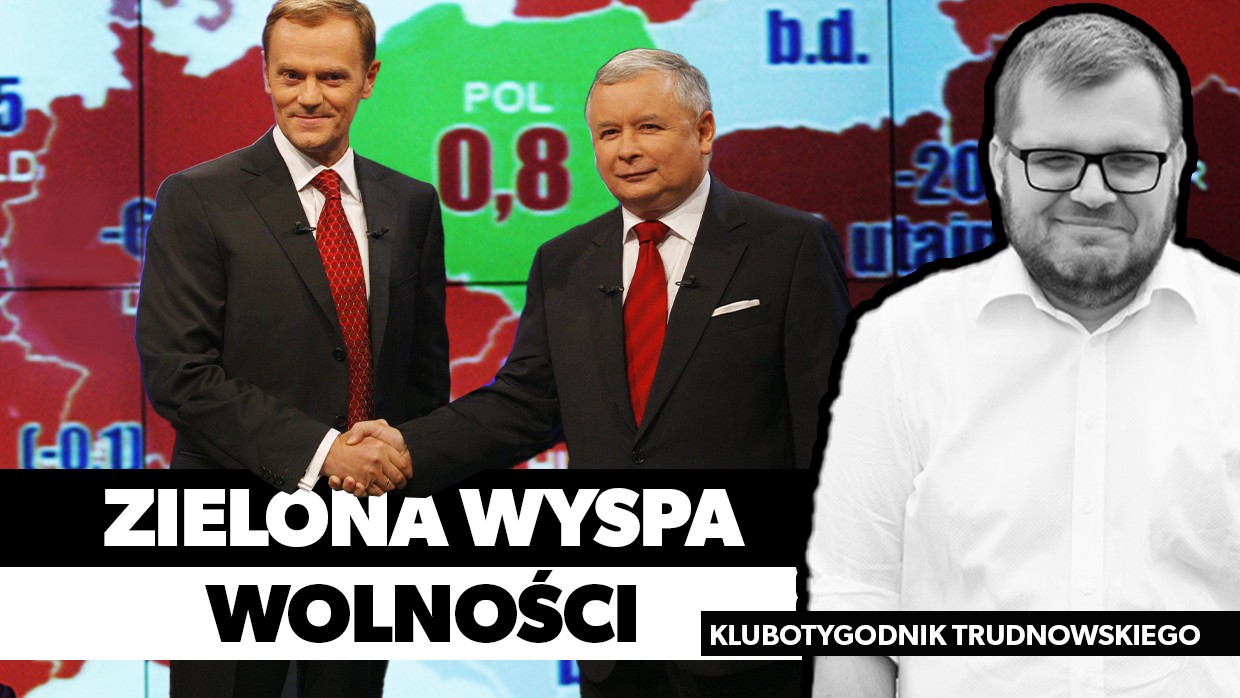Socialism, Balcerowicz and no oligarchs. Why are there no Polish politicians in the Pandora Papers?
W skrócie
„There is one aspect of Polish statehood where Tusk’s phrase about the green island and Kaczynski’s phrase about the island of freedom merge. Poland is indeed a green island of freedom from oligarchy” says Piotr Trudnowski in the latest KluboTygodnik about the political transformation and the lack of oligarchs in Poland.
„Oligarchy is the pathological linkage of business and politics. This creates a reality in which the only way to succeed in business is to do great deals with the state and the special services, which in turn requires political success, which is only possible with the support of very wealthy people. Oligarchy is the real nightmare of our region of Europe. It is not just a memory from the bygone 1990s, but a very vivid experience of the countries around us where oligarchization is taking on a new dimension. An example of this is the Czech Republic, where elections are taking place that will probably be won by the party of Andrej Babiš, who is a typical oligarch. Babiš started in the communist nomenklatura, then he built large agro-food and trade conglomerates, at a certain stage he started to buy out media, and that is how he reached his political position. Moreover, he is not the only person in his country with such connections” – Trudnowski says.
„Michał Brzeziński and Katarzyna Salach from the Faculty of Economic Sciences at the University of Warsaw analyzed several lists of the 100 richest Poles from the last few years. The researchers chose from among them those names that did not repeat themselves. In this way they created a list of 266 people whose careers they examined in detail. It turned out that out of 266 people only 5% can be said to have significant connections with politicians. Only 7% of them can be said to have made money during the political transformation. If we add up all the features that make up the image of an oligarch, it turns out that less than 30% of the richest Poles on the list of 266 names meet any part of the definition of an oligarch. Meanwhile, the figure for our region is 60%. The most optimistic message to come out of Brzeziński and Salachy’s research is that the moment when one could talk seriously about businessmen connected with politicians is long behind us”- comments Trudnowski.
„Why don’t we have an oligarchy in Poland? Michał Bałtowski and Stefan Sękowski try to answer this question in their analysis. They point to several reasons. The first and also the oldest is the history of the Law on State Enterprises from 1981, which was passed as part of the agreements between the government and the Solidarity side. As a result of it, trade unions and workers’ crews were given significant influence over the operation of enterprises. Thus, when the economic transformation began, we were dealing with already formed trade unions whose representatives had something to say when enterprises began to be privatized. The second reason was the change of personnel in state-owned enterprises in the early 1990s and the state’s right of veto, which could be used if it believed that any privatization had been carried out incorrectly. The third reason was a July 1990 regulation that gave representatives of the employees of a given enterprise the right of first refusal. The fourth reason was that the principles of market economy and competition were quickly introduced by Mazowiecki and Balcerowicz. For example, nine state-owned investment banks were created, some of which were later privatized and others remained in the hands of the state – but all of them were forced to compete with each other”- points out Trudnowski.
 Publication (excluding figures and illustrations) is available under Creative Commons Attribution 4.0 International. Any use of the work is allowed, provided that the licensing information, about rights holders and about the contest "Public Diplomacy 2021" (below) is mentioned.
Publication (excluding figures and illustrations) is available under Creative Commons Attribution 4.0 International. Any use of the work is allowed, provided that the licensing information, about rights holders and about the contest "Public Diplomacy 2021" (below) is mentioned.
Public task financed by the Ministry of Foreign Affairs of the Republic of Poland within the grant competition “Public Diplomacy 2021”. The opinions expressed in this publication are those of the authors and do not reflect the views of the official positions of the Ministry of Foreign Affairs of the Republic of Poland.




